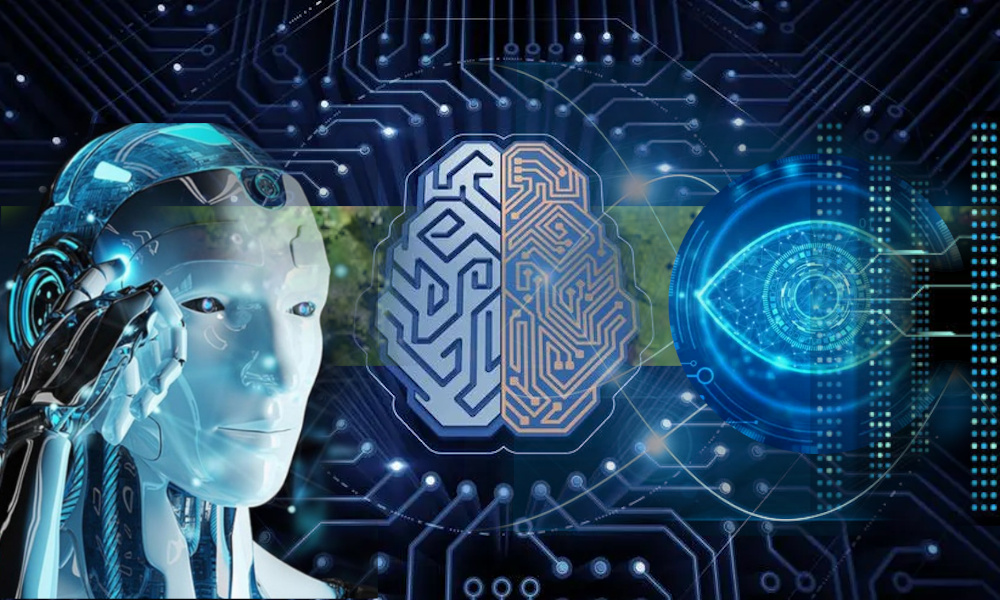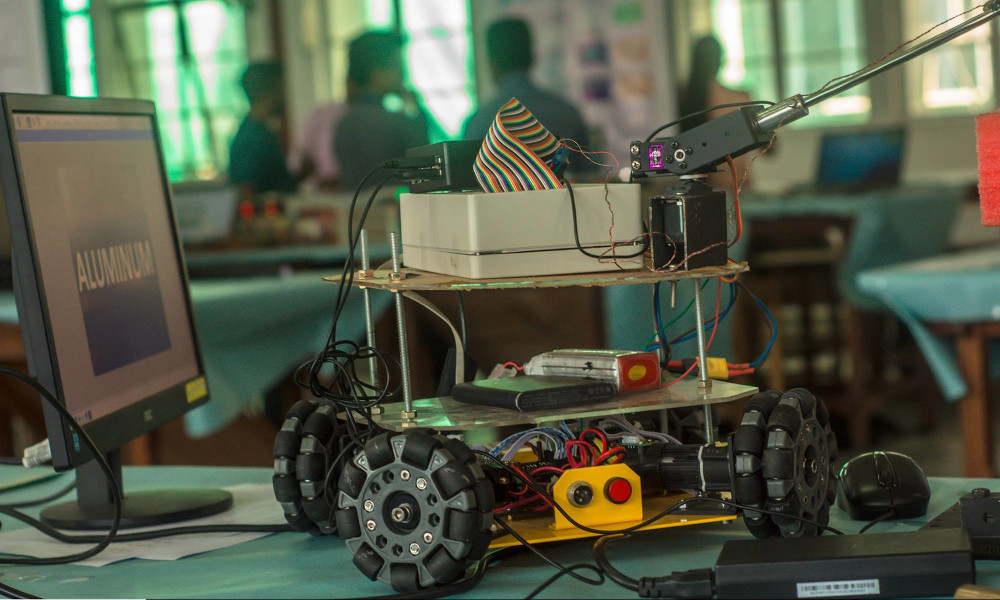Imagine, Innovate, and Ignite with AI and SigPro
The AI and Signal Processing Laboratory in the DEEE is the facility that provides students and researchers with the opportunity to learn about and develop cutting-edge technologies in these rapidly growing fields. The laboratory is equipped with a wide range of hardware and software, including high-performance AI enabled graphic processors and related computing facilities, specialized signal processing equipment such as cameras for computer vision applications and audio interfaces/filters for audio engineering, etc., and machine learning development tools.
The laboratory is used for a variety of purposes including Teaching, Research and Industry collaboration. This gives students and researchers the opportunity to work on real-world problems and gain valuable experience. Some of the research topics include development of new algorithms and techniques for image processing, natural language processing, machine learning, and speech recognition, etc. The laboratory is committed to providing students with the skills and knowledge they need to succeed in the AI and signal processing industries.

CONTRIBUTION TO TEACHING
The AISP laboratory is used for conducting practical classes for students who follow courses related to Artificial Intelligence, Machine learning, Signal and Image processing, etc. Below, you will find a list of laboratory classes belonging to several courses offered under AI and Signal Processing sub-specialization.
| SEMESTER | SUBJECT | EXPERIMENT | ||
|---|---|---|---|---|
| 4 | EE257: Signals and Systems | 1) Frequency measurement and frequency domain analysis using the spectrum analyzer | ||
| 5 | EE325 - Digital Signal Processing | 1) DSP Lab - I | ||
| 2) DSP Lab - II | ||||
| 3) DSP Lab - III | ||||
| 8 | EE593 - Advanced Signal Processing | |||
| EE595 - Machine Intelligence and Smart Systems | ||||
| EE599 - Audio Engineering and Acoustics | 1) Audio signal processing lab | |||

Research and Innovation
This laboratory provide facilities for research and development in artificial intelligence and signal processing and inter-related areas such as machine learning, big data, signal conditioning, computer vision and audio processing, etc. As mentioned, the lab has a variety of equipment and resources that allow students and staff to test and develop new algorithms and techniques. Some of the common research and development topics that are investigated in AI and Signal processing lab include:signal extraction and source separation, acoustic signal modeling classification, event extraction and tracking from video feeds, computer vision and autonomous navigation, etc. Some of the recent collaborative projects with the industry and other research institutions and also postgraduate projects can be found here: collaborations of institutions, industry and PG projects.
SOFTWARE, EQUIPMENT AND EXPERIMENTAL SETUPS
Below, you will find pictures/details of laboratory setups, equipment, and software tools belonging to the artificial intelligence and signal processing laboratory.
RESEARCH TOPICS
From the past recent years, we have been closely working with foreign universities and institutions such as University of Technology, Sydney, University of Queensland, Australia; NVIDIA Research; IEEE-RAS; University Tenaga Nasional, Malaysia, Duke University, Kent State University, Ohio, USA. Further we have been working with local universities, institutions and industries i.e. Ceylon Electricity Board and Lanka Transformers Pvt Ltd, National Aquatic Resources Research and Development Agency (NARA), National Water Supply and Drainage Board (NWSDB), Tea Research Institute (TRI), etc.
SOME OF THE RESEARCH ACTIVITIES |
||||
|
||||
|
||||
|
||||
|
||||
|
||||
|
||||
|
||||
|
||||
|
||||
|
||||
|
||||
|
CONTACT INFORMATION


